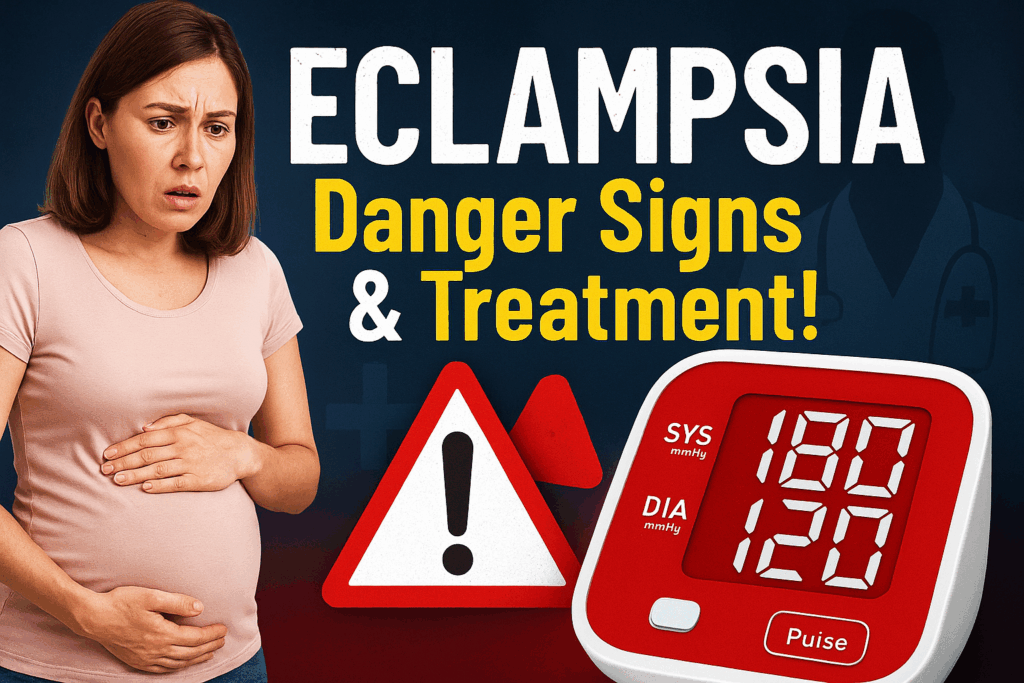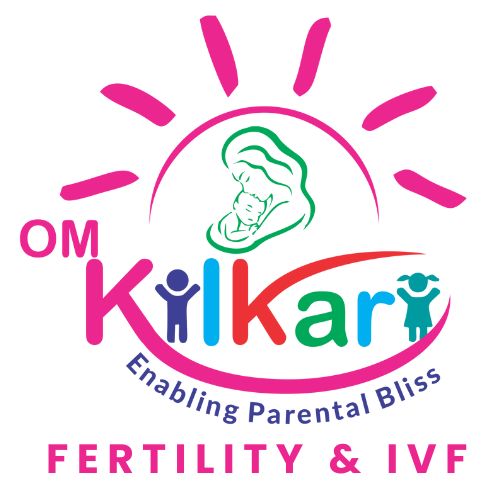Introduction

Eclampsia is a severe complication of pregnancy characterized by the onset of seizures (convulsions) in a woman with preeclampsia. Preeclampsia is a condition marked by high blood pressure and signs of organ damage, often affecting the liver and kidneys. Eclampsia is a medical emergency that requires immediate treatment to protect the health of both the mother and the baby.
Causes of Eclampsia
The exact cause of eclampsia is not fully understood, but it is believed to be related to problems with the placenta, which supplies nutrients and oxygen to the fetus. Possible contributing factors include:
- Poor blood flow to the placenta – Leads to abnormal blood vessel development, increasing blood pressure.
- Genetic factors – A family history of preeclampsia or eclampsia increases risk.
- Immune system disorders – The body may react abnormally to pregnancy.
- Blood vessel damage – Endothelial dysfunction (damage to blood vessel lining) may contribute.
- Nutritional factors – Low calcium intake or vitamin D deficiency may play a role.
Risk Factors
Certain factors increase the likelihood of developing eclampsia:
- First pregnancy
- History of preeclampsia or eclampsia in previous pregnancies
- Chronic hypertension or kidney disease
- Obesity
- Multiple pregnancies (twins or triplets)
- Age (teen pregnancies or women over 35)
- Diabetes or autoimmune diseases
Symptoms of Eclampsia
Eclampsia typically occurs after the 20th week of pregnancy, often in the third trimester or shortly after delivery. Symptoms may include:
Preeclampsia Symptoms (Before Seizures Occur)
- High blood pressure (≥140/90 mmHg)
- Severe headaches
- Blurred vision or light sensitivity
- Upper abdominal pain (usually on the right side)
- Nausea and vomiting
- Decreased urine output
- Swelling (edema) in hands, feet, or face
Eclampsia Symptoms
- Seizures (tonic-clonic convulsions)
- Loss of consciousness
- Agitation or confusion
- Muscle pain and weakness
Diagnosis of Eclampsia
Early detection of preeclampsia can prevent eclampsia. Diagnostic tests include:
- Blood Pressure Monitoring – Consistently high readings.
- Urine Tests – Checking for proteinuria (excess protein in urine).
- Blood Tests – Assessing liver function, kidney function, and platelet count.
- Fetal Monitoring – Ultrasound to check the baby’s growth and amniotic fluid levels.
- Neurological Exam – If seizures occur, brain imaging (CT or MRI) may be needed to rule out other causes.
Treatment of Eclampsia
Eclampsia is life-threatening and requires emergency medical care. Treatment focuses on:
1. Stopping Seizures
- Magnesium sulfate – The primary medication to prevent and control seizures.
- Anti-seizure drugs – Such as lorazepam or phenytoin if magnesium is ineffective.
2. Lowering Blood Pressure
- IV antihypertensives – Such as labetalol or hydralazine.
- Oral medications – Like nifedipine for long-term control.
3. Delivering the Baby
- The only definitive cure for eclampsia is delivery of the baby and placenta.
- If the pregnancy is near term (≥37 weeks), immediate delivery is recommended.
- In severe cases before 34 weeks, corticosteroids may be given to speed up fetal lung development before delivery.
4. Postpartum Care
- Blood pressure monitoring continues after delivery, as complications can still arise.
- Some women may need continued magnesium sulfate treatment for 24 hours postpartum.
Complications of Eclampsia
If untreated, eclampsia can lead to:
- Stroke due to extremely high blood pressure
- Placental abruption (separation of the placenta from the uterus)
- Organ failure (kidneys, liver, lungs)
- Premature birth or stillbirth
- Maternal or fetal death
Prevention of Eclampsia
While eclampsia cannot always be prevented, early prenatal care helps reduce risks:
- Regular blood pressure checks during pregnancy.
- Low-dose aspirin (for high-risk women, as prescribed).
- Adequate calcium and vitamin D intake.
- Managing pre-existing conditions like diabetes or hypertension.
Conclusion
Eclampsia is a serious pregnancy complication that requires urgent medical intervention. Recognizing the signs of preeclampsia early and seeking prompt treatment can prevent progression to eclampsia. If you experience symptoms like severe headaches, vision changes, or high blood pressure during pregnancy, contact your healthcare provider immediately. With proper care, most women and babies recover fully after treatment.
